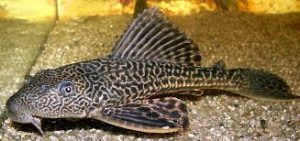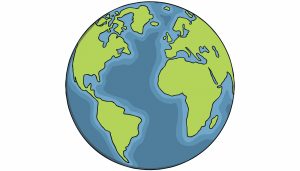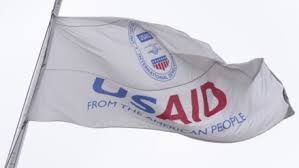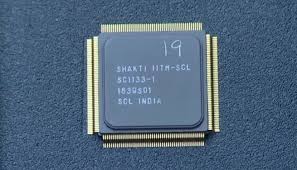Today’s Current Affairs: 13th February 2025 for UPSC IAS exams, State PSC exams, SSC CGL, State SSC, RRB, Railways, Banking Exam & IBPS, etc
Table of Contents
Fishery Survey of India:

A deep-sea fishing expedition by the Fishery Survey of India (FSI) recently revealed several highly productive, potentially untouched fishing grounds in the Arabian Sea.
- The FSI, under the Ministry of Fisheries, Animal Husbandry, and Dairying, is the nodal fishery institute in India.
- Primary Responsibility: Survey and assessment of fishery resources in the Indian exclusive economic zone (EEZ) and adjoining areas for their optimum utilization and sustainable development.
- Headquarters: Mumbai, Maharashtra
- It was established in the year 1946 as Deep Sea Fishing Station with the objective of augmenting food supply through the development of deep-sea fishing.
- It graduated to the status of a survey institute in the year 1974 under the name Exploratory Fisheries Project, with bases known as Offshore Fishing Stations in all the maritime states.
- The objectives of exploratory fishing and charting of fishing grounds, training of fishing operatives, and testing commercial possibilities of deep-sea fishing were assigned to it.
- In 1983 it was reorganized and upgraded as a national institute, the FSI.
- It was recognised as a Science & Technology Institute in the year 1988.
Vancomycin: Study

A study led by the University of Birmingham recently found that vancomycin, a commonly used antibiotic for diarrhea, could effectively treat a type of inflammatory bowel disease (IBD) linked to autoimmune liver disease.
- It is a glycopeptide antibiotic used to treat severe but susceptible bacterial infections such as MRSA (methicillin-resistant Staphylococcus aureus).
- It is commonly used to treat infections in the bloodstream, skin and soft tissues, heart valves (endocarditis), bones, joints, and certain intestinal infections like difficile-associated diarrhea.
- However, it may cause some serious side effects, including damage to hearing and kidneys. These side effects may be more likely to occur in elderly patients.
- Vancomycin will not work for colds, flu or other viral infections.
- It works by interfering with the bacterial cell wall synthesis.
- Bacterial cells have a rigid outer layer called the cell wall, which provides structural support and protects the cell from bursting.
- Vancomycin binds to specific components in the cell wall, preventing the formation of a stable cell wall structure.
- As a result, the bacterial cell becomes weak and more susceptible to damage, leading to its death.
Crocodile Catfish:

The recent discovery of the Crocodile Catfish in the Bahini River, located in the Basistha locality of Guwahati, has raised alarm over potential ecological disruptions.
- Crocodile Catfish, commonly known as the Asian giant river catfish, crocodile goonch catfish, or the giant devil catfish, is a species of catfish that belongs to the family Sisoridae.
- It is one of the largest freshwater catfish species in Asia.
- Scientific name: Bagarius suchus
- It is native to freshwater habitats in South and Southeast Asia, including countries like India, Nepal, Bangladesh, Myanmar and Thailand.
- It is typically found in large rivers and deep pools with slow to moderate currents.
- They are often associated with rocky and gravelly substrates in their natural habitats.
- It can reach impressive lengths of up to 1.5 meters or more and can weigh over 50 kilograms.
- It has a long, cylindrical body with a broad head and a wide mouth.
- Its body is typically dark brown or black, and it may have irregular patches or spots on its body.
- The dorsal fin is long and extends almost the entire length of the back.
- It is a carnivorous predator. It primarily feeds on other fish and various aquatic organisms.
- It is known for its voracious appetite and can consume prey that is relatively large compared to its own size.
- Conservation Status: IUCN Red List: Near Threatened
Brahmagiri Wildlife Sanctuary:

The state government’s move to build a village for tribals in the buffer zone of Brahmagiri Wildlife Sanctuary has raised questions over their safety, besides concerns over fueling wildlife conflicts.
- It is nestled in the Western Ghats in the Kodagu district of Karnataka.
- It covers an area of about 181 sq.km.
- The sanctuary gets its name from the highest point, the Brahmagiri peak, which is 1607 m in height.
- The Lakshmana Tirtha River originates in the sanctuary and is a tributary of the Cauvery River.
- The area is generally of undulating terrain with several steep valleys and hillocks.
- The primary vegetation of the sanctuary includes evergreen and semi-evergreen forests, shoal forest patches in grasslands, and bamboos.
- It is surrounded by coffee and cardamom plantations.
- It is the home of the lion-tailed macaque, which is a rare and endangered species.
- Tiger, elephants, bonnet macaque, common langur, barking deer, mouse deer, Malabar giant squirrel, giant flying squirrel, and Indian Gaur are the big mammals commonly found here.
SAFTA:

The Solvent Extractors’ Association of India (SEA) has requested the Government to regulate the inflow of edible oils from Nepal and other SAARC countries due to misuse of SAFTA norms.
- SAFTA is the free trade arrangement of the South Asian Association for Regional Cooperation (SAARC).
- The agreement came into force in 2006, succeeding the 1993 SAARC Preferential Trading Arrangement.
- SAFTA signatory countries: Afghanistan, Bangladesh, Bhutan, India, Maldives, Nepal, Pakistan and Sri Lanka.
- SAFTA recognizes the need for special and differential treatment for LDCs in its preamble.
- The objectives of this Agreement are to promote and enhance mutual trade and economic cooperation among Contracting States by, inter-alia:
- Eliminating barriers to trade in, and facilitating the cross-border movement of goods between the territories of the Contracting States;
- Promoting conditions of fair competition in the free trade area, and ensuring equitable benefits to all Contracting States, taking into account their respective levels and pattern of economic development;
- Creating effective mechanism for the implementation and application of this Agreement, for its joint administration and for the resolution of disputes; and
- Establishing a framework for further regional cooperation to expand and enhance the mutual benefits of this Agreement.
Asian Fisheries and Aquaculture Forum:

The 14th Asian Fisheries and Aquaculture Forum (14AFAF) is being organized in New Delhi during February 12-14, 2025.
- 14th AFAF has brought together key players from the fisheries and aquaculture sectors and will host around 1,000 delegates from 24 countries, including researchers, policymakers, industry leaders, and stakeholders.
- Theme of 14th AFAF: “Greening the Blue Growth in Asia-Pacific”
- It is being jointly organized by the Asian Fisheries Society (AFS), Kuala Lumpur; Indian Council of Agricultural Research (ICAR), New Delhi; the Department of Fisheries (DoF), Government of India; and the Asian Fisheries Society Indian Branch (AFSIB), Mangalore.
Asian Fisheries and Aquaculture Forum:
- It is a triennial event of the Asian Fisheries Society which has a strong legacy of fostering global collaboration in the sector.
Since its inception, the forum has been successfully hosted in multiple countries across Asia. - This prestigious event is being hosted in India for the 2nd time after the 8AFAF held at Kochi in 2007.
- The forum will provide a platform to showcase India’s contributions, strengthen international partnerships and promote innovative approaches for sustainable, resilient, and economically viable fish production systems.
- With a rapidly expanding blue economy, progressive government policies and significant scientific advancements, India has emerged as a key player in sustainable fisheries and aquaculture.
- Today, India occupies 2nd position in total fish production and also aquaculture production globally.
- Headquarters: Kuala Lumpur, Malaysia.
Devolution Index:

The Ministry of Panchayati Raj will release the comprehensive Devolution Index Report on 13th February, 2025, at Indian Institute of Public Administration (IIPA), New Delhi.
- Devolution Index is a result of meticulous research and empirical analysis, providing insights into the progress of decentralization across States and Union Territories.
- The Index evaluates six critical dimensions: Framework, Functions, Finances, Functionaries, Capacity Building, and Accountability of the Panchayats
- The Index specifically examines how ‘free’ Panchayats are to make and implement independent decisions, reflecting the true spirit of Article 243G of the Constitution.
- This article empowers State legislatures to devolve powers and responsibilities to Panchayats across 29 subjects listed in the Eleventh Schedule.
- It serves as a tool for strengthening cooperative federalism and local self-governance, enabling States to identify areas for improvement and adopt best practices for more empowered and effective Panchayats.
- For citizens, it provides transparency in tracking Panchayat functioning and resource allocation.
- For elected representatives, it offers data-driven insights for advocacy and reform.
- For government officials, it serves as a roadmap for implementing effective decentralization policies.
- Policymakers can use it to assess the overall health of local governance and identify where reforms are most urgently needed.
- The initiative aligns with the vision of Viksit Bharat, where Panchayats serve as the foundation for rural transformation, driving inclusive growth and sustainable development at the grassroots level.
Structural Changes in Earth’s Inner Core:

A study published in Nature Geoscience reveals that Earth’s inner core is undergoing structural changes.
- Researchers analyzed seismic waves near Antarctica’s South Sandwich Islands from 1991 to 2024. Repeating earthquakes revealed subtle changes in seismic waves, offering insights into Earth’s inner structures.
- The near surface of Earth’s inner core is undergoing structural changes, challenging the earlier belief that it is rigid and stable.
- The inner core’s rotation appears to be slowing down, which could subtly alter the length of a day on Earth.
- Researchers suggest viscous deformation in the inner core is caused by dynamic interactions between the turbulent, molten outer core and the solid inner core, similar to how magma flows under stress.
Economic Contribution of Southern States:

Chief Economic Adviser (CEA) V. Anantha Nageswaran emphasized that Southern Indian states should benchmark their economic performance against global standards rather than just other Indian states, highlighting the economic strength of the region and areas requiring improvement.
Economic Contribution of Southern States:
- Economic Contribution: Southern States account for 30% of India’s GDP, with Tamil Nadu and Karnataka leading in Gross State Domestic Product (GSDP) growth after Maharashtra in FY 2024-25.
- Higher Growth Rate: The South records 6.3% annual GSDP growth in real terms, compared to 5% for the rest of India.
- Per capita GDP is rising at over 5%, compared with the rest of India per capita GDP growth of 4.2%.
- Manufacturing & Investment: 37.4% of total factories and 37% of operational factories are located in South India.
- 25.6% of India’s total fixed capital investment comes from the region.
- 33% of India’s manufacturing workforce is based in South India.
Nari Adalat Program:

The Government of India is inviting proposals from other states and Union territories to expand the Nari Adalat Program.
- Nari Adalat, under the ‘Sambal’ sub-scheme of Mission Shakti, provides an alternative grievance redressal mechanism for women at the gram panchayat level, resolving minor disputes (e.g., domestic violence, dowry, child custody) through negotiation, mediation, and reconciliation.
- Members: Comprises 7 to 11 members known as ‘Nyaya Sakhis’, nominated by the gram panchayat.
- Implementation: Started in 2023 on a pilot basis in 50 gram panchayats each in Assam and Jammu & Kashmir, with plans to expand to other states.
Competitive and Cooperative Federalism:

The government has emphasized various initiatives to foster competitive and cooperative federalism and its benefits.
- Competitive Federalism is a system of horizontal (state-state) and vertical (Centre-state) competition to attract investment, improve governance, and enhance services.
- The 15th Finance Commission (FC) has introduced indicators like tax & fiscal efforts to evaluate state performance, that determines fund allocation.
- Examples of state-specific welfare schemes that operate alongside central schemes include:
- Rythu Bandhu (Telangana): A direct income support scheme for farmers.
- KALIA (Odisha): A farmer assistance scheme complementing the central PM Kisan Yojana.
- Vibrant Gujarat Summit: Focused on attracting global investment.
- Cooperative Federalism fosters Centre-state collaboration for effective governance, balanced development, and shared best practices.
- FC’s performance-based fund allocation encourages states to work in alignment with national SDGs.
- Key examples include the Goods and Services Tax (GST), Ayushman Bharat, and PM-KISAN, that require Centre-state cooperation.
- The All India Services (IAS and IPS) enable a uniform governance structure across states.
- The States Reorganization Act, 1956 established five Zonal Councils for regional cooperation, facilitating discussions on inter-state issues.
USAID Freeze:

U.S. President Donald Trump, on his first day of his second term, imposed a 90-day freeze on foreign assistance to reassess program efficiency and alignment with U.S. foreign policy.
- On January 20, 2023, President Donald Trump issued a 90-day freeze on foreign assistance to reassess program efficiency and alignment with U.S. foreign policy.
- Critics argue the freeze targets Biden-era programs, driven by political vendetta rather than strategic reassessment.
- Elon Musk (DOGE head) called USAID a “criminal organization,” while Secretary of State Marco Rubio emphasized restructuring to serve U.S. national interests.
- USAID Established in 1961 under an Act of Congress, USAID (United States Agency for International Development) is an independent agency responsible for administering civilian foreign aid and development assistance.
- Mission is to promote democratic values, advance global peace and prosperity, and align with U.S. national security interests.
- Key Sectors: Economic development, health, education, food security, humanitarian aid, climate change, and governance.
- Operates in over 100 countries, with flagship programs like PEPFAR (HIV/AIDS relief), Feed the Future (food security), and Power Africa (energy access).
Sṛjanam Rig:

Union Minister for Science & Technology launched India’s first indigenous Automated Biomedical Waste Treatment Plant, named Sṛjanam, at AIIMS, New Delhi.
- Sṛjanam is an automated, eco-friendly biomedical waste treatment rig designed to disinfect pathogenic medical waste without incineration.
- Location: AIIMS, New Delhi.
- Developed by: CSIR-NIIST (National Institute for Interdisciplinary Science and Technology), Thiruvananthapuram.
- Under Ministry: Ministry of Science & Technology.
- Implemented by: AIIMS in collaboration with CSIR.
- It Uses non-incineration technology to disinfect biomedical waste such as blood, urine, lab disposables.
- Employs a specialized antimicrobial process to neutralize pathogens.
- Converts treated waste into safe organic material, reducing hazardous emissions
Shakti Semi-Conductor Chips:

India’s first indigenous aerospace-grade semiconductor chip, ‘Shakti’, has been developed by IIT Madras and ISRO under the Digital India RISC-V initiative (DIRV) to strengthen India’s semiconductor ecosystem and strategic autonomy.
- Shakti is an indigenous microprocessor based on the RISC-V open-source Instruction Set Architecture (ISA).
- It is designed to meet the high-reliability and security needs of India’s space, defense, and computing industries.
- Developed by: IIT Madras in collaboration with ISRO, supported by the Ministry of Electronics and Information Technology (MeitY) under the Digital India RISC-V (DIRV) initiative.
- Key Features:
- End-to-End Indigenous: Fully developed, fabricated, and tested in India.
- Fault-Tolerant Design: Enhanced reliability for aerospace and defense applications.
- RISC-V Architecture: Uses an open-source 64-bit processor for flexibility and customization.
- High-Performance Computing: Supports command and control systems, sensor integration, and AI-based applications.
- Advanced Security: Designed for strategic sectors requiring robust cybersecurity measures.
- Multiple Boot Modes: Expandable for future space missions and secure computing requirements.
Advani Triumphs in Indian Snooker Championship:
India’s most accomplished cueist, Pankaj Advani, secured his 36th national title and 10th men’s snooker championship at the Yashwant Club. Demonstrating exceptional skill and resilience, he triumphed over Brijesh Damani in the final, avenging an earlier group-stage defeat.
International Shipments category:
India has climbed to 22nd place in the International Shipments category and 38th overall in the World Bank’s Logistics Performance Index (LPI) 2023. This progress is driven by policy reforms, port modernization, and technology adoption.This improvement underscores the country’s focused efforts on enhancing logistics efficiency, reducing costs, and integrating advanced technology.
RBI Fines Federal Bank & Karur Vysya Bank for Rule Violations:
The RBI has imposed a total penalty of ₹35.60 lakh on Federal Bank (₹27.30 lakh) and Karur Vysya Bank (₹8.30 lakh) for regulatory non-compliance. FB was fined for opening savings accounts for ineligible entities, violating deposit rules, while Karur Vysya Bank failed to meet loan compliance norms.
Indian Students Win Bronze at Global M-Gov Awards 2025:
Three Indian computer science students Namely Sagar Teotia (Team Lead), Abhinav Mishra, Anushka Singh from Maharaja Agrasen Institute of Technology, New Delhi, won the Bronze Award at the Global Best M-Gov Award 2025 during the World Government Summit (WGS) in Dubai. Their AI-powered app, AccessWay, was recognized for enhancing mobile government services and fostering social inclusion for individuals with disabilities. The award was presented by Mansour bin Zayed Al Nahyan, Vice President of the UAE, along with a cash prize of $10,000.
India-Egypt Joint Special Forces Exercise ‘CYCLONE-III’ Begins in Rajasthan:
India and Egypt have launched the third edition of their joint special forces exercise, ‘CYCLONE-III’, at the Mahajan Field Firing Ranges in Rajasthan. This exercise, scheduled from February 10 to 23, 2025, is a crucial part of the growing military cooperation between the two nations. It follows the second edition held in Egypt in January 2024 and aims to enhance interoperability and strategic coordination between their special forces.
President of India Inaugurates International Conference on Unani Medicine:
President Droupadi Murmu inaugurated an international conference on Unani medicine at Vigyan Bhawan, New Delhi, organized by the Central Council for Research in Unani Medicine (CCRUM) under the Ministry of Ayush. The event, titled “Innovations in Unani Medicine for Integrative Health Solutions – A Way Forward”, marked the Unani Day celebrations and focused on Unani medicine’s role in contemporary healthcare.
Trump Imposes 25% Tariffs on Steel & Aluminum Imports:
U.S. President Donald Trump has officially announced a 25% tariff on all steel and aluminum imports, a move set to take effect from March 4, 2025. The decision eliminates previous country-specific exemptions, impacting key exporters like Canada, Brazil, Mexico, and South Korea. The administration has framed this as a step to simplify tariff policies, boost domestic production, and address concerns of foreign dumping. This announcement marks a return to the protectionist trade policies that characterized Trump’s first term in office.
ISRO & IIT Madras Unveil Indigenous Chip for Space:
The Indian Space Research Organisation (ISRO) and the Indian Institute of Technology Madras (IIT Madras) have collaboratively developed and successfully booted an indigenous semiconductor chip named ‘IRIS’ (Indigenous RISC-V Microprocessor for Space Applications). This development aligns with the ‘Atmanirbhar Bharat’ initiative, aiming to reduce dependence on foreign technology in critical sectors.




